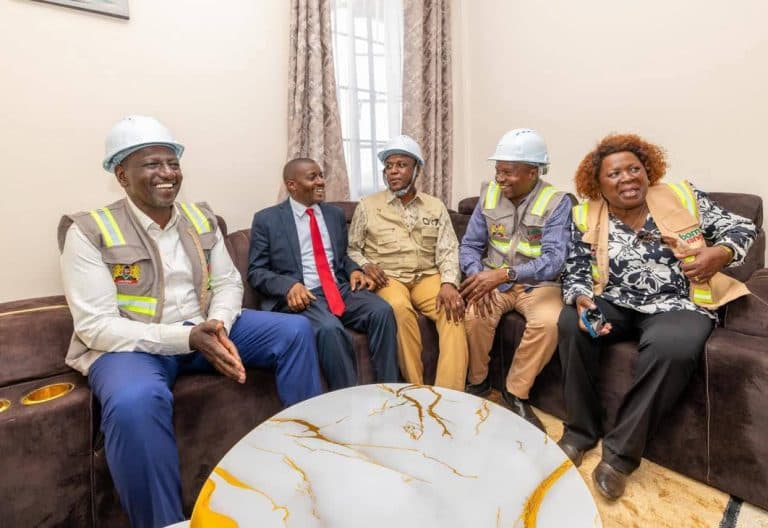We're loading the full news article for you. This includes the article content, images, author information, and related articles.
The move by opposition legislators to accompany the President signals a potential political realignment in a key bastion, framing the classic Kenyan dilemma: loyalty to party versus the pursuit of state-sponsored development.

NAIROBI – Makueni Senator Dan Maanzo, a key ally of Wiper Party Leader Kalonzo Musyoka, has publicly defended the decision by several opposition leaders from the Ukambani region to welcome and accompany President William Ruto on his four-day development tour which began on Wednesday, 12 November 2025. Maanzo framed the move as a constitutional duty to collaborate with the national government to secure tangible development for their constituents, setting aside political differences for the sake of regional progress.
Speaking in Makueni on Wednesday, Senator Maanzo revealed he held a direct conversation with President Ruto regarding stalled projects and development priorities. "Today, at the affordable housing project, I looked the President eye-to-eye and asked the questions I have been asking his cabinet secretaries," Maanzo stated, adding that the President provided assurances on key projects like the Thwake Dam. This justification was echoed by other opposition figures, including Makueni Governor Mutula Kilonzo Jr., who also joined the presidential delegation.
President Ruto's tour, covering Makueni, Kitui, and Machakos counties, is heavily focused on the inspection and launch of infrastructure and economic projects aligned with the Kenya Kwanza government's Bottom-Up Economic Transformation Agenda (BETA). On the first day, Wednesday, 12 November 2025, the President commissioned the Kasikeu and Mikuyu Bridges and launched the Emali-Ukia Road in Makueni County. He also issued 2,140 title deeds to residents in Kasikeu, addressing long-standing land tenure issues. "We are implementing infrastructure development projects that meet the immediate needs of our citizens, unlocking the economic potential of our rural communities," President Ruto stated during the launch.
The tour's itinerary for Thursday, 13 November 2025, includes inspecting the Kamuw’ongo–Kandwia and Kwasiku–Migwani–Mbondoni roads in Kitui County, before launching the Ikutha–Mutha and Chuluni–Nzombe–Mwitika roads. Later in the day, he is scheduled to commission the newly completed Ithookwe Stadium and the refurbished Kitui Airstrip. On Friday, the President is expected to launch the Kangundo–Mwala and Kivandini–Miseleni roads and open the Machakos Affordable Housing Project.
The presence of senior Wiper party members alongside the President has ignited intense speculation about the political future of the Ukambani region, a traditional opposition stronghold. President Ruto has made his intentions clear, vowing to bring the region into the government's fold "by any means necessary" ahead of the 2027 general election. "Ukambani should not remain in opposition. The mistake was mine. I let people come here and waste your time and put the region in the opposition," the President said in Makueni.
During his address, President Ruto appeared to send a subtle message to Wiper leader Kalonzo Musyoka, telling Governor Kilonzo Jr. that he does not require permission from anyone to work with the national government. "The governor does not need approval from anyone, including his party leader, to collaborate with me. We are employed by the citizens," Ruto remarked.
This charm offensive is seen by analysts as a strategic move to weaken Musyoka's grip on the region. It comes after months of concerted efforts by government-allied leaders to court the region. Labour Cabinet Secretary Alfred Mutua, a prominent figure from the region now in government, has accused Kalonzo Musyoka of employing a "political poverty strategy" to intentionally limit development and maintain his influence.
While Maanzo and others justify their cooperation on developmental grounds, the move highlights the perennial challenge facing opposition zones in Kenya: balancing political opposition with the need to access state resources. Prior to the tour, some of Kalonzo's allies had claimed they were being sidelined from the planning, indicating divisions within the local leadership. The Wiper party, which is a key pillar of the Azimio la Umoja One Kenya coalition, has officially maintained a stance of opposition to the Kenya Kwanza administration. The decision by its senior members to publicly align with the President, even on a development tour, will likely fuel further debate on the nature and strategy of political opposition in Kenya. The tour is set to conclude on Saturday with a comprehensive meeting of regional leaders to discuss the development agenda, a forum that will be closely watched for further signs of political realignment.
Keep the conversation in one place—threads here stay linked to the story and in the forums.
Sign in to start a discussion
Start a conversation about this story and keep it linked here.
Other hot threads
E-sports and Gaming Community in Kenya
Active 9 months ago
The Role of Technology in Modern Agriculture (AgriTech)
Active 9 months ago
Popular Recreational Activities Across Counties
Active 9 months ago
Investing in Youth Sports Development Programs
Active 9 months ago
Key figures and persons of interest featured in this article